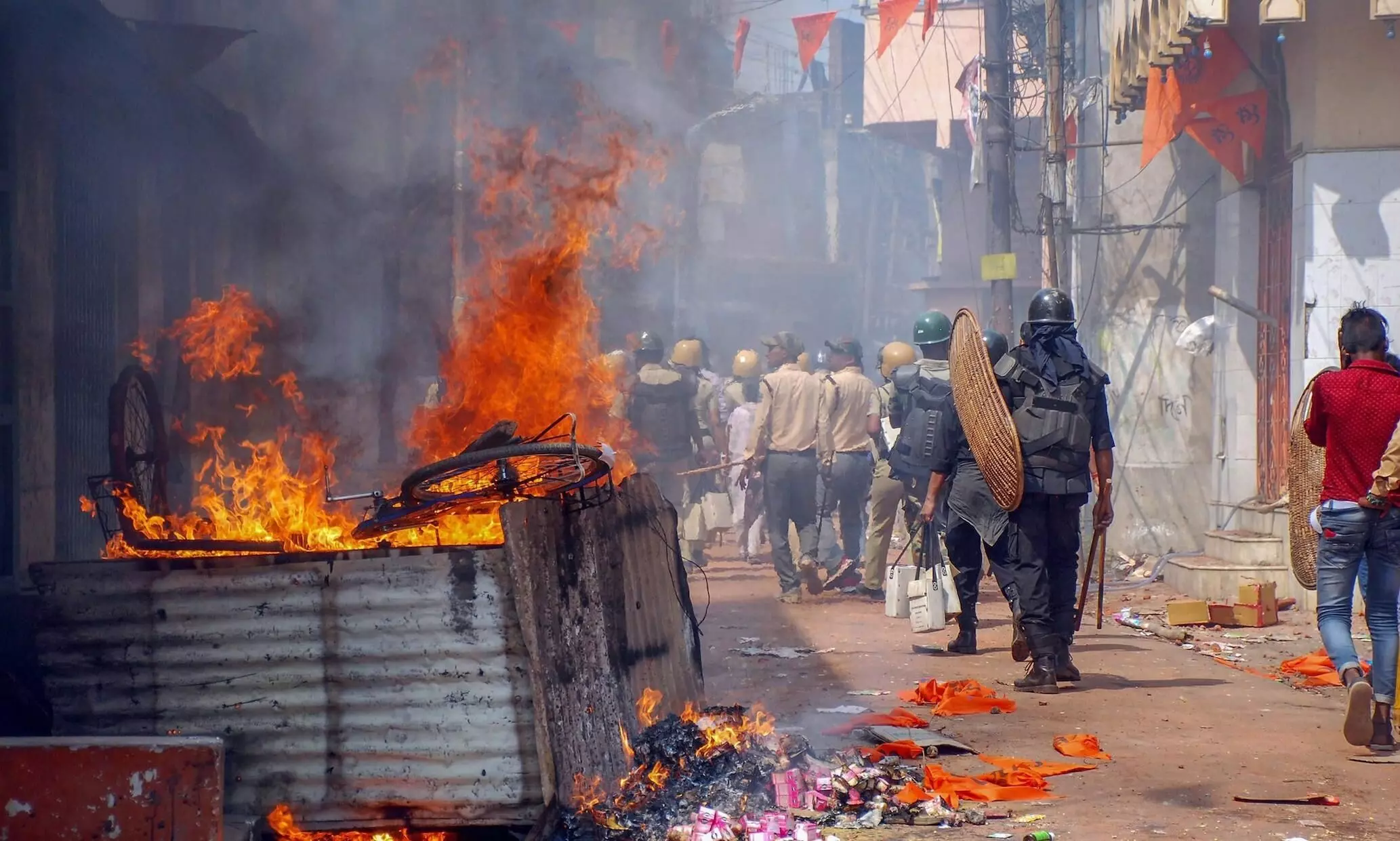
Clashes around Ram Navami celebrations again
text_fieldsAt the time of writing this, the clashes in West Bengal and Bihar following Ram Navami celebrations have not ended. It was the processions on March 30 in connection with Ram Navami celebrations that resulted in clashes in Howrah and Dalkhola in West Bengal, Mungar, Bihar Sharif and Sasaram in Bihar, Lucknow, Gorakhpur and Mathura in Uttar Pradesh, Vadodara in Gujarat and Hassan in Karnataka. According to reports, clashes broke out in many places after the Shobha yatras led by Sangh Parivar organizations marched through areas populated by Muslim minorities, carrying weapons and shouting provocative slogans. In the background of the upcoming panchayat elections in West Bengal , the local leaders of the BJP and arch-rivals Trinamool Congress came forward vying with each other to organize Shobha yatras. The ruling party and the opposition have started a political confrontation around the fact that the conflict could not be brought under control even after four days. Rather than ending the conflict, the ruling and opposition parties are competing to reap political gains. On a PIL filed by opposition leader Suvendu Adhikari, the Calcutta High Court has ordered the submission of a report by Wednesday on the steps taken to quell the violence. The clashes in Bihar and Gujarat did not ease even yesterday. The court asked the Advocate General why permission was given for the shobha yatra to pass through the same places where similar incidents had happened in previous years.
The question raised by the court is a simple commonsense enquiry that would come up if we look at the atrocities, killings and looting that take place every year in the name of Ram Navami Shobha yatra. Last year's Ram Navami celebrations also had resulted in clashes in 15 states across Gujarat, Madhya Pradesh, Jharkhand, West Bengal, Delhi, Karnataka, Andhra Pradesh, Maharashtra, Goa and Uttarakhand. Unfortunately, over the decades, such celebrations have been turned into an occasion for communal clashes by vested interests. As political parties have decided to intervene in problems based on calculations of political gains to reap, the administration and official systems become mere spectators. There is no other reason why the conflicts are recurring at the same time and in the same place year after year. Since the British period, there has been a trend of using processions organized as part of religious celebrations as a means of conflict by champions of racial hatred. These conflicts led to the terrible riots of the 1920s in Bengal, which also includes present-day Bihar. Such processions have a clear regular pattern: the loud chants of the marches through the minority areas will touch their crescendo as they reach the front of the mosques and raise provocative slogans. As the other party gets provoked, a fight and stone pelting will ensue; and that will lead to murder and vanalism. In most of the incidents, the authorities and official systems do not take the initial steps to avert trouble and only when the situation gets out of control, will the authorities and the official systems will swing into action in firefighting mode. By then the racists will have achieved their goal. Then the last step of the government is to appoint inquiry commissions. All the commissions thus appointed so far have been unanimous on the need for extreme vigilance to prevent untoward incidents in the riot-prone areas. However, all the reports have been ignored as proven by recurring clashes. That is why the Calcutta High Court asked the Mamata government why it repeated the old mistake.
At the same time, leader of the Shiv Sena Uddhav Thackeray faction, Sanjay Raut's observation about the Ram Navami atrocities deserves serious note. In a press conference in Mumbai on Monday, he alleged that the BJP is planning and sponsoring riots in the country and that they have formed a special group to create riots across India. The sangh parivar's erstwhile associate who knows their inner workings, remarked, "BJP has formed a special wing. Riots are created through them. It seems that their plan is to start riots in the country before the elections of 2024 and face the elections or to postpone the elections". When we add the trouble in the name of Ram Navami, to the lynching of a cow in Karnataka the other day and the prospects of conflict looming in many other places, it is a worrying picture that emerges. If we want to overcome it, it is necessary to take stern action against violence and aggressors without fear or favour. Vigilance should be exercised to prevent such tragedies from recurring. Will the government and the political parties that lead it show the will and determination to do that.


























